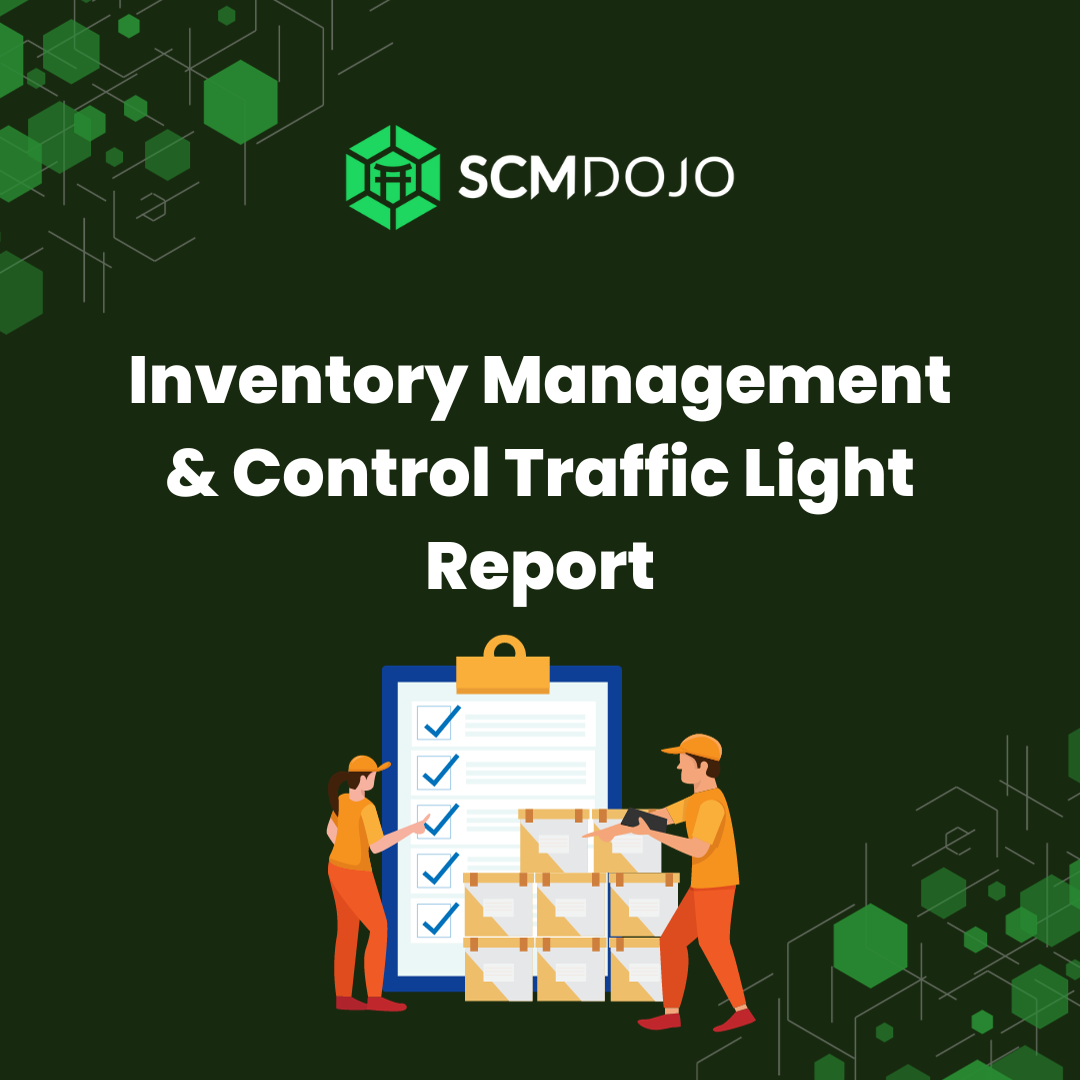New cars are hard to come by in 2021, and so are stoves and refrigerators. The reason? A global shortage of computer chips.
From computers to cars, to gaming systems and appliances, multiple types of products include semiconductor chips – which have been in short supply since the start of the COVID-19 pandemic.
The global medical crisis and ensuing shutdowns revealed weaknesses in the global supply chain across industries. Since computer chips are essential to various products, shortages of chips have led to other products, such as new cars, becoming more scarce.
Since lead times for semiconductor chips are about a year out, these product shortages could last into 2023 and beyond.
SCMDOJO is looking at the worldwide shortage of computer chips, what caused it and how supply chain teams and professionals can emerge from this crisis with stronger supply chain management skills. Read on to learn more.
What Is Causing the Global Semiconductor Shortage?
The short answer is that COVID-19 did not cause the shortage of computer chips all by itself. The following factors have contributed to the computer chip shortage.
Computer Chip Sales
Since automakers reduced their orders for computer chips in spring 2020, those chips went to consumer electronics makers instead. When automakers stepped up their orders again, those semiconductor chips were already spoken for.
Global Politics
Politics came into play when the Trump administration began regulating semiconductor sales to Huawei Technologies and other Chinese companies.
Meanwhile, American companies lost access to chips manufactured by Chinese companies that the U.S. government had blacklisted.
Damage to Factories
Two factory fires in Japan reduced the supply of advanced sensing devices and fiberglass for circuit boards.
Shipping Delays
Slowdowns in global shipping and shortages of shipping containers due to the COVID-19 pandemic have delayed the arrival of chips from overseas.
Lean Supply Chain Management
Another contributor to the global semiconductor shortage is the trend of keeping a lean supply chain with “just in time” shipping essential parts.
While this supply chain management style has saved companies money on storage, lean supply chain management only works if the products are readily available.
Since manufacturers did not have an emergency supply of computer chips to mitigate the risk of running short of them, the shortage shut down production lines and factories.
Why Are Supply Chains Disrupted?
Assuming a supply chain will never be disrupted and that you will always have the essential parts and materials you need to be delivered quickly at a reasonable price is delusional thinking. Supply chains can be disrupted for multiple reasons, as evident in the global chip shortage.
Poor Planning
Supply chain professionals should be forward-focused, anticipating changes across the globe that could impact the products and materials essential for production.
Natural Disasters
A look at the news in 2021 will show some of the natural disasters and weather issues that can hamper supply chains from running smoothly. Fires in the Western U.S. and flooding in central Europe and the American South are just a few examples.
Shortages of Materials
Products, such as computer chips and materials needed to produce goods, can be affected by weather, factory shutdowns, power outages, and more. This leaves gaps in supply chains.
Medical Emergencies
The COVID-19 pandemic shows what can happen when populations have to be quarantined. Supply chains are as vulnerable as the people who make them run.
Shipping Delays
A container ship getting stuck in the Suez Canal in 2021 was a wake-up call for everyone who took for granted on-time shipments of materials essential for production. Most of the time, shipping runs smoothly. But infrastructure issues such as a crack in a bridge can derail shipping schedules.
Price Increases
Rising prices reflecting inflation, shortages, or increased demand can leave your company vulnerable if the possibility of price increases is not figured into supply chain management.
Supply Chain Transformation
While lean inventory practices save companies the costs of storing and maintaining inventories of essential products and materials, they leave companies at risk. The global shortage of semiconductors is just one example of the dangers of lean supply chain management.
Supply chain professionals for manufacturers in sectors affected by the semiconductor shortage should look at their strategies with an eye toward risk management and cost. Should they have been more aware of global conditions? Would they benefit from a greater awareness of all the supply chain tiers, and how failure in one area could have a ripple effect across the supply chain?
The events of 2020 have made it clear that an agile supply chain with built-in resiliency is essential to manufacturing and trade. The time has come for a supply chain transformation.
Strengthening Your Chip Supply Chain
Knowing the ins and outs of your supply chain for semiconductor chips means that you and your company will be less vulnerable to changes in the world that could decrease the availability of computer chips or increase prices.
Here are a few steps you can take to make your computer chip supply chain more resilient:
Know Where Your Chips Come From
Knowing where the semiconductor chips in your products come from will reveal the supply chain disruption risk your company is exposed to. You may decide to have more than one source of computer chips or to make sure your computer chips come from more than one area of the world.
Make Your Company an Attractive Client
How easy is your company to do business with? Having empathy for your suppliers may show areas for improvement in this area, making computer chip manufacturers more likely to want to do business with you.
Assess Potential Delays
If your company did experience a supply chain disruption that delayed shipments of computer chips, how much of a delay would that be? Knowing more about the lost time involved will help in assessing supply chain risks.
Monitor Your Supply Chain
Having an awareness of your entire supply chain and its weaknesses will help supply chain professionals understand the many risks that can threaten supplies of essential materials. Using automated material handling systems such as Microsoft D365’s 2021 wave 1 can streamline the entire supply chain process so the likelihood of a shortage is foreseen and avoided.
Going Forward
The only certainty for supply chains in the future is more disruptions. While several stable years can lull supply chain managers into complacency, the truth is that supply chain disruptions, shortages, shipping delays, and price increases can come at any time.
Manufacturers should be proactive in protecting their supply chain, paying attention to where their chips come from and the risks that might be associated with their sourcing.
Knowing that a shortage of chips could shut down production for a manufacturer, more thought should be given to having a back inventory to bridge any delays.
Clearly, supply chain transformation is needed as the world emerges from the challenges of 2020 and moves forward. These lessons will not necessarily reduce the risk of supply chain disruptions, but they will help manufacturers deal with them more effectively.
Less Lean
The past months have shown the weaknesses of having a “just in time” supply chain. Whether 2020 was the death of lean supply chain management is debatable. Bt going forward, smart supply chain professionals will be better prepared for the next crisis to come along.
The cost of buying more computer chips as inventory and housing that inventory should be weighed against the risk of having a factory shut down because of a lack of supply.
Having a diverse range of computer chip suppliers and multiple sourcing options will also protect companies from supply chain disruptions.
Awareness of Supply Competition
The days when supply chain professionals could look at the needs of their companies in a vacuum are over. Other manufacturers who use the same type of computer chip are supply competitors.
In a global shortage, the company that purchased the computer chips your company needs is the competition that can shut down your production lines.
As the supply chain is considered, logistics specialists should also consider other sectors in the market for sources of the same semiconductors.
Understanding the Importance of Computer Chips
The global shortage of computer chips has highlighted just how many industries now rely on having a supply of semiconductors for their manufacturing process. From 5G phones to automobiles, semiconductors are a part of thousands of products we use every day.
Understanding semiconductor supply and demand means gaining a greater knowledge of computer chip manufacturing and procurement, including their supply chain and sourcing.
A Resilient Supply Chain to combat Supply Chain Disruptions
The disruptions that started in 2020 are a lesson for companies going forward. Supply chain professionals should have a more proactive stance in sourcing materials, considering more than just the needs of their companies.
Knowledge of your supply chain and sourcing items, such as computer chips, is the first step in becoming a resilient organization. Manufacturers also may move from lean supply chain management to a hybrid, keeping a small inventory of chips in case of disruptions.
A broader view of the many possible disruptors of the semiconductor supply chain and adding risk management methods into the supply chain process will help manufacturers and supply chain professionals be better prepared for the next supply chain crisis.
About the Author- Dr Muddassir Ahmed
Dr MuddassirAhmed is the Founder & CEO of SCMDOJO. He is a global speaker, vlogger and supply chain industry expert with 17 years of experience in the Manufacturing Industry in the UK, Europe, the Middle East and South East Asia in various Supply Chain leadership roles. Dr. Muddassir has received a PhD in Management Science from Lancaster University Management School. Muddassir is a Six Sigma black belt and founded the leading supply chain platform SCMDOJO to enable supply chain professionals and teams to thrive by providing best-in-class knowledge content, tools and access to experts.
You can follow him on LinkedIn, Facebook, Twitter or Instagram







